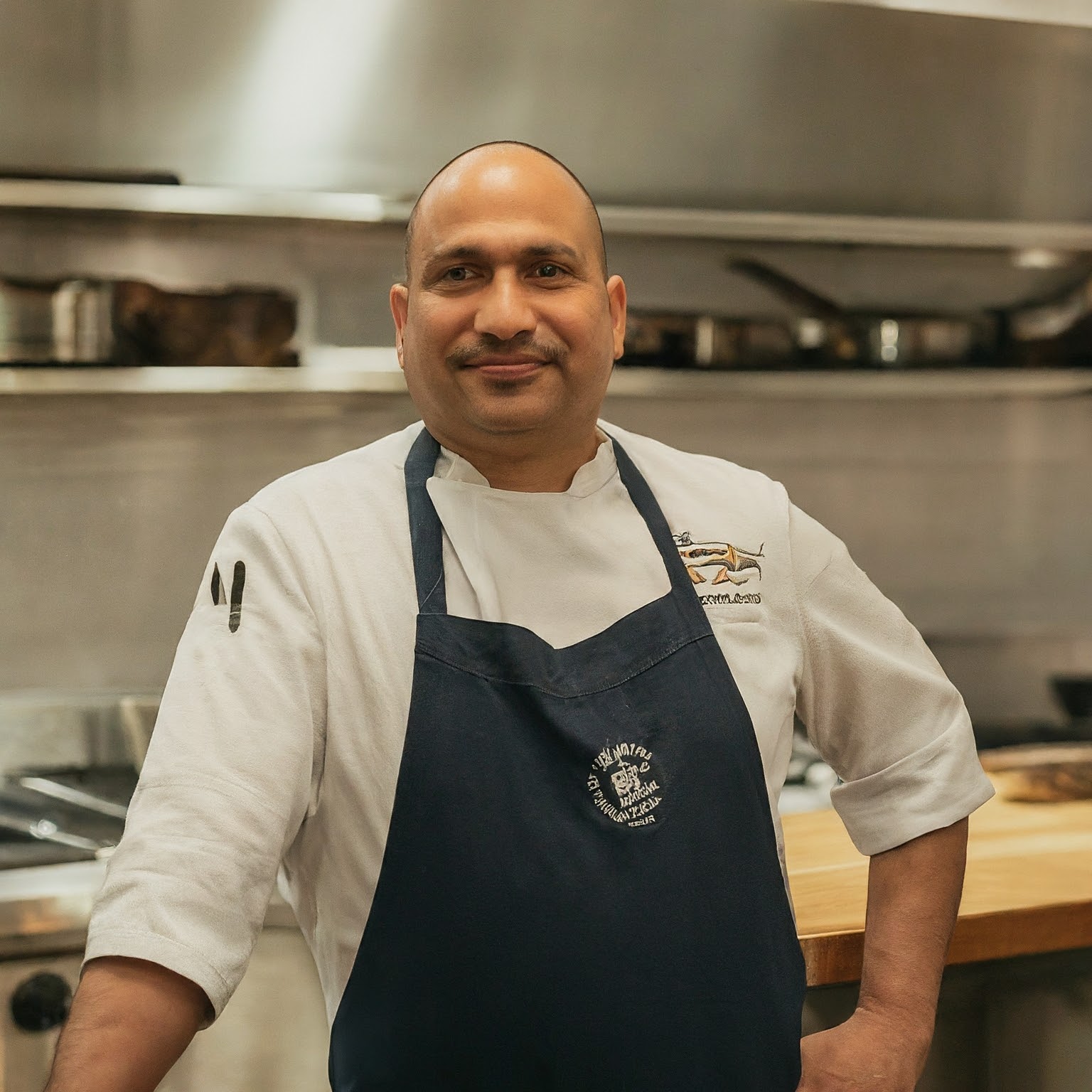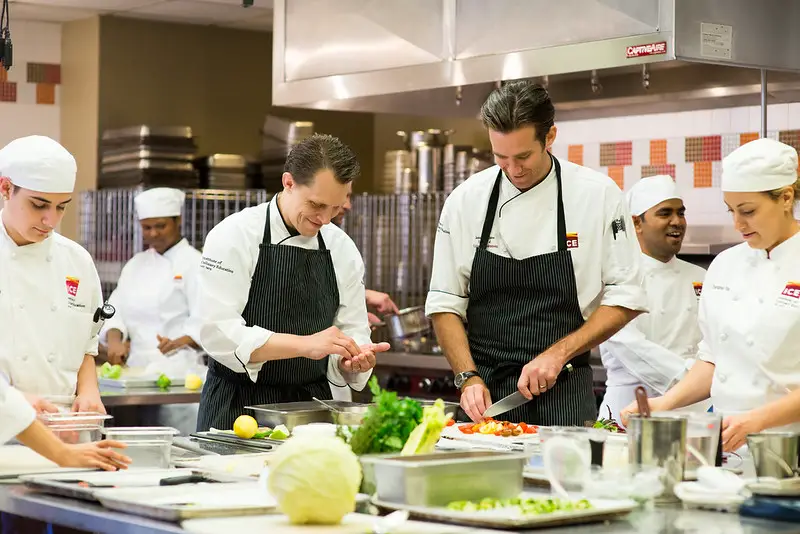
An executive chef
The role of an executive chef is one of the most challenging and rewarding positions in the culinary world.
Beyond culinary expertise, a successful executive chef must possess a unique combination of skills and qualities to effectively lead a kitchen, manage a team, and ensure the success of their establishment.
This article explores the essential qualities that define a successful executive chef.
Introduction
In today’s competitive culinary landscape, an executive chef’s responsibilities extend far beyond preparing exquisite dishes.
They are the driving force behind a restaurant’s kitchen operations, responsible for menu development, team leadership, and overall kitchen management.
The ability to balance these diverse duties requires a blend of technical skills, creativity, and strong leadership abilities. Understanding the essential qualities of a successful executive chef can provide valuable insights for aspiring chefs and industry professionals alike.
Key Takeaways
- Leadership: Effective team management and the ability to inspire and motivate staff.
- Creativity: Innovative menu development and culinary experimentation.
- Organizational Skills: Efficient kitchen management and logistical planning.
- Financial Acumen: Budget management and cost control.
- Communication: Clear and concise communication with the kitchen team and front-of-house staff.
- Adaptability: Flexibility to adjust to changing trends and customer preferences.
- Attention to Detail: Ensuring consistent quality and presentation of dishes.
- Passion and Dedication: A deep commitment to the culinary arts and continuous improvement.
Table Chart: Essential Qualities of a Successful Executive Chef
| Quality | Description |
|---|---|
| Leadership | Inspiring and managing a team effectively, fostering a positive work environment. |
| Creativity | Developing innovative menus and experimenting with new culinary techniques. |
| Organizational Skills | Efficiently managing kitchen operations, inventory, and scheduling. |
| Financial Acumen | Controlling costs, managing budgets, and ensuring profitability. |
| Communication | Maintaining clear and effective communication within the team and with front-of-house staff. |
| Adaptability | Being flexible and responsive to evolving culinary trends and customer preferences. |
| Attention to Detail | Ensuring consistent quality, presentation, and adherence to food safety standards. |
| Passion and Dedication | Demonstrating a deep commitment to the culinary arts and a drive for continuous improvement. |
Leadership
Effective leadership is the cornerstone of a successful executive chef. Leading a diverse team in a high-pressure environment requires:
- Inspiration: Motivating team members to perform at their best and fostering a positive kitchen culture.
- Delegation: Assigning tasks appropriately and trusting team members to execute their responsibilities.
- Conflict Resolution: Addressing and resolving conflicts quickly and fairly to maintain a harmonious work environment.
Creativity
Creativity is essential for menu development and keeping the dining experience fresh and exciting. This involves:
- Innovation: Continuously experimenting with new ingredients, techniques, and presentations.
- Menu Development: Creating unique and appealing menus that set the restaurant apart from competitors.
- Seasonal Adaptation: Adjusting menus to incorporate seasonal ingredients and trends.
Organizational Skills
Strong organizational skills are crucial for managing the complexities of a busy kitchen. Key aspects include:
- Logistics: Efficiently managing inventory, ordering supplies, and ensuring timely preparation of dishes.
- Scheduling: Creating and maintaining staff schedules to ensure adequate coverage during peak times.
- Workflow Management: Streamlining kitchen processes to maximize efficiency and minimize waste.
Financial Acumen
An executive chef must have a solid understanding of financial management to ensure the restaurant’s profitability. This includes:
- Budgeting: Creating and adhering to budgets for food, labor, and operational expenses.
- Cost Control: Monitoring and controlling food costs, portion sizes, and waste.
- Revenue Maximization: Developing strategies to increase revenue, such as special promotions and menu pricing.
Communication
Clear and effective communication is vital for smooth kitchen operations. This involves:
- Instructions: Provide clear instructions and feedback to kitchen staff.
- Coordination: Ensuring seamless coordination between the kitchen and front-of-house staff.
- Customer Interaction: Engaging with customers to gather feedback and enhance their dining experience.
Adaptability
The culinary industry is constantly evolving, and an executive chef must be adaptable to stay relevant. This includes:
- Trend Awareness: Keeping up with current culinary trends and incorporating them into the menu.
- Customer Preferences: Being responsive to customer feedback and preferences.
- Crisis Management: Handling unexpected challenges, such as equipment failures or staffing issues, with agility.
Attention to Detail
Attention to detail ensures that every dish meets the restaurant’s high standards. Key elements include:
- Quality Control: Monitoring the quality and presentation of dishes before they leave the kitchen.
- Consistency: Ensuring that all dishes are prepared consistently according to the restaurant’s standards.
- Food Safety: Adhering to strict food safety and sanitation guidelines to protect customers and staff.
Passion and Dedication
Passion and dedication are the driving forces behind a successful executive chef. This involves:
- Commitment: Demonstrating a deep commitment to the culinary arts and the restaurant’s success.
- Continuous Learning: Pursuing ongoing education and professional development to stay at the forefront of the industry.
- Resilience: Maintaining enthusiasm and a positive attitude, even during challenging times.
Key Takeaways:
- Leadership: Inspiring and managing a team effectively.
- Creativity: Innovating and developing unique menus.
- Organizational Skills: Efficiently managing kitchen operations and logistics.
- Financial Acumen: Controlling costs and managing budgets.
- Communication: Ensuring clear and effective communication within the team and with customers.
- Adaptability: Staying flexible and responsive to trends and challenges.
- Attention to Detail: Maintaining high standards of quality and presentation.
- Passion and Dedication: Demonstrating a deep commitment to the culinary arts and continuous improvement.
Aspiring executive chefs who cultivate these qualities will be well-equipped to lead their kitchens to success, creating memorable dining experiences and driving the restaurant’s overall performance.
Conclusion
The role of an executive chef is multifaceted and demanding, requiring a unique combination of skills and qualities.
From leadership and creativity to organizational prowess and financial acumen, a successful executive chef must excel in various areas to effectively manage a kitchen and deliver exceptional dining experiences.
By embodying these essential qualities, aspiring chefs can navigate the challenges of the culinary industry and achieve success at the highest level.





